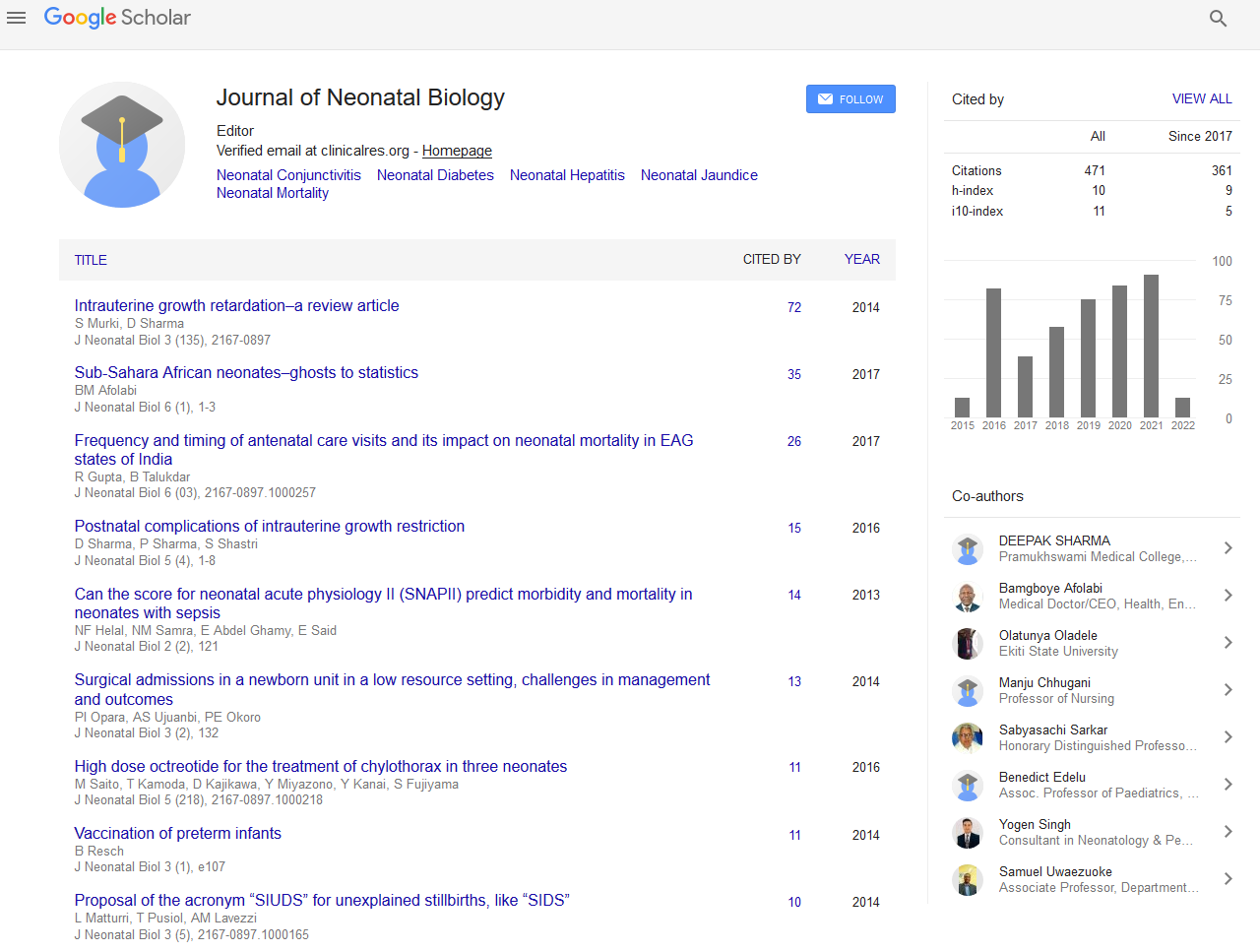PMC/PubMed Indexed Articles
Indexed In
- Genamics JournalSeek
- RefSeek
- Hamdard University
- EBSCO A-Z
- OCLC- WorldCat
- Publons
- Geneva Foundation for Medical Education and Research
- Euro Pub
- Google Scholar
Useful Links
Share This Page
Journal Flyer

Open Access Journals
- Agri and Aquaculture
- Biochemistry
- Bioinformatics & Systems Biology
- Business & Management
- Chemistry
- Clinical Sciences
- Engineering
- Food & Nutrition
- General Science
- Genetics & Molecular Biology
- Immunology & Microbiology
- Medical Sciences
- Neuroscience & Psychology
- Nursing & Health Care
- Pharmaceutical Sciences
Optimizing calcium and phosphate concentration in parenteral nutrition for the prevention of metabolic bone disease of prematurity
20th International Conference on Neonatology and Perinatology
December 04-06, 2017 | Madrid, Spain
Shing-Yan Robert Lee
Pamela Youde Nethersole Eastern Hospital, Hong Kong
Scientific Tracks Abstracts: J Neonatal Biol
Abstract:
Metabolic bone disease (MBD) of prematurity is mainly caused by inadequate amount of calcium and phosphate in parenteral nutrition admixtures given to premature infants in early days of life before full enteral feeding is established. The longer the duration of parenteral nutrition and the smaller the body size of premature infants, more severe is the MBD of prematurity. According to published guidelines/survey of parenteral nutrition for premature infants in Australia, USA and Europe, it is still a common practice to prepare parenteral nutrition admixtures with calcium and phosphate concentrations such that these minerals are administered far below the fetal accretion rate. Not surprisingly, MBD of prematurity is still prevalent worldwide. An animal study on piglets showed that calcium and phosphate could be administered in parenteral nutrition at the rates of 15 mmol/kg/day calcium and 15 mmol/kg phosphate, which actually exceeded the fetal accretion rates. These exceedingly high rates of calcium and phosphate cannot be recommended at this stage as there is lack of human data. Instead we recommend: for growing infants less than 1.2 kg administer calcium and phosphate at 2.2 and 1.7 mmol/kg/ day respectively. These rates are lower than the fetal accretion rates but are sufficient to prevent the occurrence of symptoms of MBD of prematurity. To prepare such parenteral nutrition admixtures, solubility of calcium and phosphate could be an obstacle. Therefore, we recommend using organic phosphate and organic calcium, the compatibility of which has been proven beyond doubt.
Biography :
Shing-Yan Robert Lee studied Medicine in the University of Hong Kong and graduated in 1989. After graduation, he pursued his career in Pediatrics in Hong Kong. He received overseas training for half year in the Neonatal Service, the Monash Medical Centre, Melbourne, Australia in 1996. He obtained fellowship in the Hong Kong College of Pediatrics in 1997. Currently he is the Consultant in Neonatology in Pamela Youde Nethersole Eastern Hospital, Hong Kong. So far, he has 40 publications in peer-reviewed journals.


